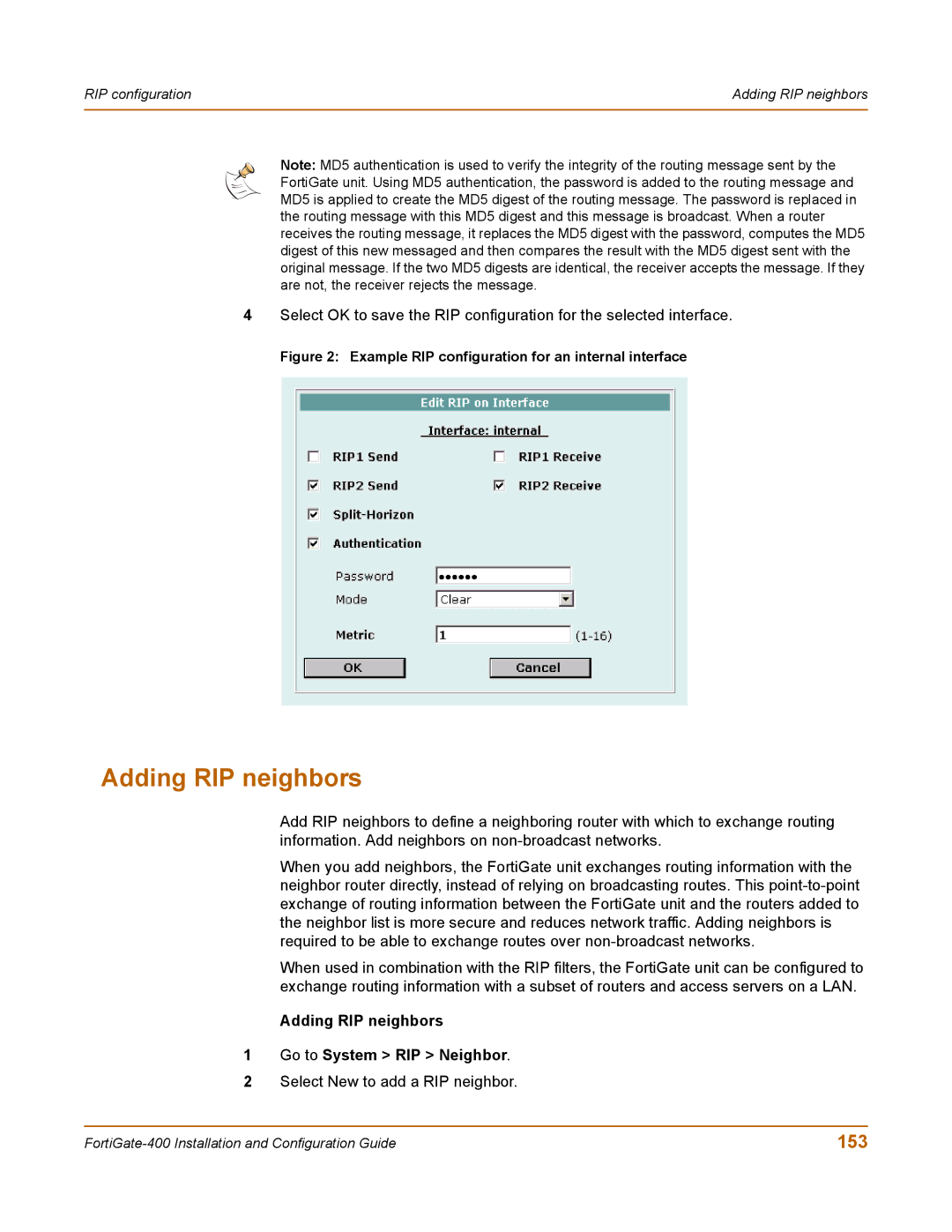
RIP configuration | Adding RIP neighbors |
|
|
Note: MD5 authentication is used to verify the integrity of the routing message sent by the FortiGate unit. Using MD5 authentication, the password is added to the routing message and MD5 is applied to create the MD5 digest of the routing message. The password is replaced in the routing message with this MD5 digest and this message is broadcast. When a router receives the routing message, it replaces the MD5 digest with the password, computes the MD5 digest of this new messaged and then compares the result with the MD5 digest sent with the original message. If the two MD5 digests are identical, the receiver accepts the message. If they are not, the receiver rejects the message.
4Select OK to save the RIP configuration for the selected interface.
Figure 2: Example RIP configuration for an internal interface
Adding RIP neighbors
Add RIP neighbors to define a neighboring router with which to exchange routing information. Add neighbors on
When you add neighbors, the FortiGate unit exchanges routing information with the neighbor router directly, instead of relying on broadcasting routes. This
When used in combination with the RIP filters, the FortiGate unit can be configured to exchange routing information with a subset of routers and access servers on a LAN.
Adding RIP neighbors
1Go to System > RIP > Neighbor.
2Select New to add a RIP neighbor.
153 |
